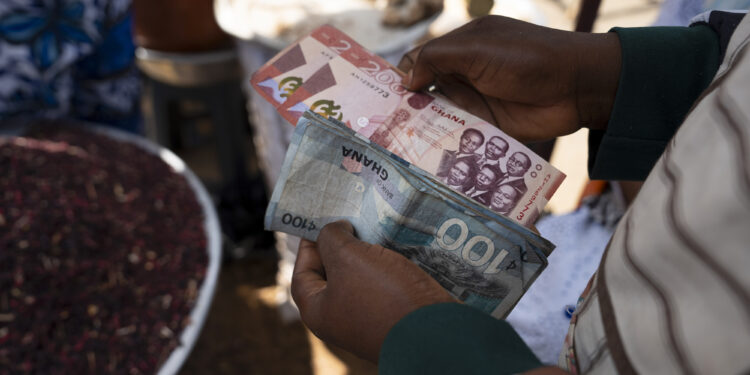FABAG Calls for Tax Relief Amid Cedi Appreciation
The Executive Secretary of the Food and Beverage Association of Ghana (FABAG), Sam Aggrey, has stated that the recent appreciation of the cedi against the US dollar has not translated into tangible benefits for businesses, insisting that without accompanying tax reliefs, the currency’s gains remain inconsequential for the private sector.
Speaking on PM Express on Thursday, July 3, Mr Aggrey noted that while the strengthening of the cedi is a positive development, businesses continue to grapple with the lingering effects of earlier currency depreciation and a burdensome tax regime.
“Dollar depreciation is not being felt at all. If you look at what has happened in the past, where the cedi depreciated from ¢3.80 to as high as ¢16, you can imagine the extent of losses suffered by investors and the country,” Mr Aggrey said.
He explained that many businesses are yet to recover from the shocks of the sharp depreciation, adding that the recent gains of the cedi, though welcome, are insufficient to compensate for earlier losses. “It’s like being hit by one bullet and then hit again. While some may see it as good news, others have lost heavily,” he stressed.
Mr Aggrey emphasised that without deliberate government intervention in the form of tax cuts and policy adjustments, particularly at the country’s ports, the average business operator would remain burdened, despite the cedi’s improved value.
“We are looking at where government will also come in, as it were, to reduce certain taxes for people to truly feel the effect of the cedi’s appreciation,” he said.
According to him, previous policy decisions, such as the introduction of new taxes and levies at the ports, significantly contributed to the cedi’s depreciation. He pointed to the government’s move towards a full reversal of the benchmark value policy as a key misstep.
“We warned the Finance Minister when he indicated plans to implement 100% of the benchmark value. We told him it would be disastrous for the economy, but our concerns were ignored,” Mr Aggrey recounted. “At that time, the cedi was around ¢11 to the dollar. After the tax increases, we saw the cedi continue to depreciate, leading to higher import duties and further hardship for businesses.”
He further noted that the cumulative impact of approximately 21 different taxes on a single imported item continues to stifle business operations, making an urgent case for a comprehensive overhaul of the country’s tax system.
“It will take decisive policy shifts—either stepping back or moving forward—to reduce these taxes as we discussed during campaign engagements. An overhaul is needed to bring lasting relief to businesses,” he concluded.
The comments come as the cedi has seen relative stability in recent weeks, buoyed by inflows from the International Monetary Fund (IMF) programme and improved macroeconomic management. However, the business community continues to call for deeper structural reforms to complement currency stability with real sector growth.








